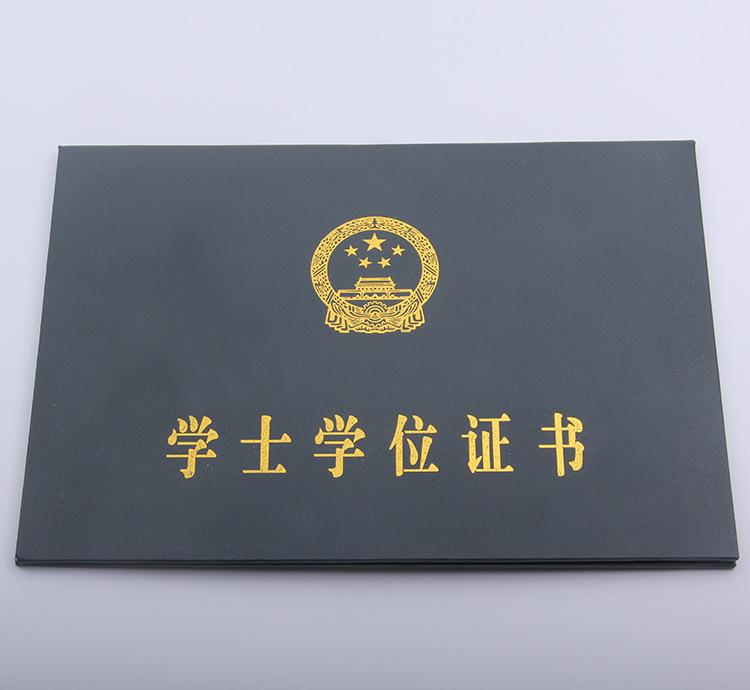讓你說好英語的33個方法
來源:未知?? 日期:2017-08-17 15:52
口譯翻譯,青島口譯一天多少錢
If you’re reading this, I imagine you want to communicate with confidence and competence in English.
如果你在看這篇文章,我能想象你是想更好、更自信地用英語交流。
What you need is to become a self-directed learner, somebody who takes responsibility for their own learning and creates their own learning programme to develop their English.
你需要做的是成為一個自主學習的人,有些人對待學習很自覺,并且會做出自己的學習規劃來提高自己的英語。
Here are 33 ways to speak better English, without going to classes.
下面是不用去上課學習就能讓你說好英語的33個方法。
1. Record yourself speaking English.
錄下自己所說的英語。
2. Read aloud, especially dialogue.
大聲的讀出來,特別是對話。
3. Sing along to English songs while you’re driving or in the shower.
開車或洗澡的時候跟唱英文歌。
4. Watch short video clips and pause and repeat what you hear.
看短視頻,按停頓然后重復你聽到的。
5. Learn vowel and consonant sounds in English.
學習英語元音和輔音的發音。
6. Learn and identify schwa.
學習并學會識別中性元音。
7. Learn about weak and strong forms of common words.
學會常用詞的弱讀形式和重讀形式。
8. Learn about word stress.
學會單詞的重讀。
9. Learn about sentence stress.
學會句子的重讀。
10. Identify fixed and semi-fixed phrases and practise them.
學會識別固定短語和半固定短語,并不斷練習。
11. Learn about collocations.
學習固定搭配詞組。
12. Replace regular verbs with phrasal verbs.
學會用動詞短語來代替規則動詞。
13. Learn short automatic responses.
學會簡短而自然地應答。
14. Practise telling stories and using narrative tenses.
練習講述故事和講述的時態。
15. Learn when to pause for effect.
學會什么時候該停頓以達到更好的效果。
16. Learn about chunking.
學會拆分。
17. Learn about typical pronunciation problems in your first language.Find out about the problems people who speak your first language have when speaking English and you will know what you need to focus on.
學習跟你同個母語的人的典型發音問題。找出那些跟你說一樣母語的人在說英語時會出現的發音問題,你就會知道你應該注意什么。
18. Choose an accent you like and imitate it.
選一個你喜歡的口音腔調并模范它。
19. Find an actor/actress you like and identify what makes them powerful speakers.
找一個你喜歡的男演員或女演員并找出是什么讓他們成為強大的演說家。
20. Use a mirror and / or a sheet of paper for identifying aspirated and non-aspirated sounds.
用一面鏡子或一張白紙來辨別送氣和不送氣的音。
21. Practise tongue twisters.Tongue twisters are phrases designed to improve your pronunciation of particular sounds.
練習繞口令。繞口令是專門用來提高你對某些詞的發音的句子。
22. Practise spelling names, numbers and dates aloud.
練習大聲地拼讀名字、數字、日期。
23. Learn about common intonation patterns.
學會常用的語音語調形式。
24. Learn about places of articulation.The articulators are the parts of the mouth we use to turn sound into speech.
學習發音的位置。發音的位置是我們嘴巴把聲音變成語言的一部分。
25. After looking at places of articulation, practise making the movements that native speakers use when they speak.
在學會發音的位置后,練習英語母語者說話時是是怎樣移動發音位置的。
26. Learn why English is a stress-timed language.The rhythm of the language is based on stressed syllables so we shorten the unstressed syllables to fit the rhythm.
了解為什么英語是重音節拍的語音。語言的節奏是基于重度音節的,所以我們會縮短非重讀的音節發音以便適應語言的節奏。
27. Learn how to interrupt and interject politely and successfully.
學會如何禮貌且成功地打斷和插入別人的談話中。
28. Learn about ellipsis, assimilation and linking sounds.
學會省略不讀、濁化和連讀。
29. Speak lower not higher. Studies show that you command attention and demonstrate authority with a deeper vocal tone, especially men.
說話要低沉一些,研究表明低沉的聲音能使你博得注意力和展示你的權威,特別是對于男士來說。
30. Listen and read along to poetry (or rap songs) to practise the rhythm of English.
收聽和朗讀詩歌或饒舌歌曲來鍛煉你的英語發音節奏。
31. Learn exclamation words and fillers.
學會用感嘆詞和填充詞。
32. Learn how to paraphrase.
學會如何做進一步說明。
33. Use contractions more.Contractions make your speech more efficient because they save time and energy.Say ‘should not’ and then say ‘shouldn’t’: which is easier to say?
多使用縮讀。使用縮讀能讓你的講話更高效,因為這樣說會節省時間和精力。像說‘should not’和‘shouldn’t' 哪個更容易說呢?
如果你在看這篇文章,我能想象你是想更好、更自信地用英語交流。
What you need is to become a self-directed learner, somebody who takes responsibility for their own learning and creates their own learning programme to develop their English.
你需要做的是成為一個自主學習的人,有些人對待學習很自覺,并且會做出自己的學習規劃來提高自己的英語。
Here are 33 ways to speak better English, without going to classes.
下面是不用去上課學習就能讓你說好英語的33個方法。
1. Record yourself speaking English.

錄下自己所說的英語。
2. Read aloud, especially dialogue.
大聲的讀出來,特別是對話。
3. Sing along to English songs while you’re driving or in the shower.
開車或洗澡的時候跟唱英文歌。
4. Watch short video clips and pause and repeat what you hear.
看短視頻,按停頓然后重復你聽到的。
5. Learn vowel and consonant sounds in English.
學習英語元音和輔音的發音。
6. Learn and identify schwa.
學習并學會識別中性元音。
7. Learn about weak and strong forms of common words.
學會常用詞的弱讀形式和重讀形式。
8. Learn about word stress.
學會單詞的重讀。
9. Learn about sentence stress.
學會句子的重讀。
10. Identify fixed and semi-fixed phrases and practise them.
學會識別固定短語和半固定短語,并不斷練習。
11. Learn about collocations.
學習固定搭配詞組。
12. Replace regular verbs with phrasal verbs.
學會用動詞短語來代替規則動詞。
13. Learn short automatic responses.
學會簡短而自然地應答。
14. Practise telling stories and using narrative tenses.
練習講述故事和講述的時態。
15. Learn when to pause for effect.
學會什么時候該停頓以達到更好的效果。
16. Learn about chunking.
學會拆分。
17. Learn about typical pronunciation problems in your first language.Find out about the problems people who speak your first language have when speaking English and you will know what you need to focus on.
學習跟你同個母語的人的典型發音問題。找出那些跟你說一樣母語的人在說英語時會出現的發音問題,你就會知道你應該注意什么。
18. Choose an accent you like and imitate it.
選一個你喜歡的口音腔調并模范它。
19. Find an actor/actress you like and identify what makes them powerful speakers.
找一個你喜歡的男演員或女演員并找出是什么讓他們成為強大的演說家。
20. Use a mirror and / or a sheet of paper for identifying aspirated and non-aspirated sounds.
用一面鏡子或一張白紙來辨別送氣和不送氣的音。
21. Practise tongue twisters.Tongue twisters are phrases designed to improve your pronunciation of particular sounds.
練習繞口令。繞口令是專門用來提高你對某些詞的發音的句子。
22. Practise spelling names, numbers and dates aloud.
練習大聲地拼讀名字、數字、日期。
23. Learn about common intonation patterns.
學會常用的語音語調形式。
24. Learn about places of articulation.The articulators are the parts of the mouth we use to turn sound into speech.
學習發音的位置。發音的位置是我們嘴巴把聲音變成語言的一部分。
25. After looking at places of articulation, practise making the movements that native speakers use when they speak.
在學會發音的位置后,練習英語母語者說話時是是怎樣移動發音位置的。
26. Learn why English is a stress-timed language.The rhythm of the language is based on stressed syllables so we shorten the unstressed syllables to fit the rhythm.
了解為什么英語是重音節拍的語音。語言的節奏是基于重度音節的,所以我們會縮短非重讀的音節發音以便適應語言的節奏。
27. Learn how to interrupt and interject politely and successfully.
學會如何禮貌且成功地打斷和插入別人的談話中。
28. Learn about ellipsis, assimilation and linking sounds.
學會省略不讀、濁化和連讀。
29. Speak lower not higher. Studies show that you command attention and demonstrate authority with a deeper vocal tone, especially men.
說話要低沉一些,研究表明低沉的聲音能使你博得注意力和展示你的權威,特別是對于男士來說。
30. Listen and read along to poetry (or rap songs) to practise the rhythm of English.
收聽和朗讀詩歌或饒舌歌曲來鍛煉你的英語發音節奏。
31. Learn exclamation words and fillers.
學會用感嘆詞和填充詞。
32. Learn how to paraphrase.
學會如何做進一步說明。
33. Use contractions more.Contractions make your speech more efficient because they save time and energy.Say ‘should not’ and then say ‘shouldn’t’: which is easier to say?
多使用縮讀。使用縮讀能讓你的講話更高效,因為這樣說會節省時間和精力。像說‘should not’和‘shouldn’t' 哪個更容易說呢?
?







 百度統計
商橋
亚洲综合色丁香麻豆|
你好老叔电影观看免费|
色妞bbbb女女女女|
国产成人精品久久亚洲高清不卡
|
男人资源在线观看|
国产乱理伦片在线观看|
黄床大片30分钟免费看|
国产成人综合日韩精品无|
6080yy三级手机理论在线|
国产精品99久久久精品无码|
99re热久久这里只有精品6|
天天躁狠狠躁狠狠躁性色av|
中文字幕第13亚洲另类|
日本午夜精品一区二区三区电影
|
武则天一边上朝一边做h|
免费观看性欧美大片无片|
秋霞理论最新三级理论最|
国产aaa女人十八毛片|
色五五月五月开|
国产AV寂寞骚妇|
男人操女人免费|
亚洲综合久久综合激情久久|
波多野结衣波多野结衣|
免费在线观看黄网站|
男人让女人桶爽30分钟|
亚洲黄色免费在线观看|
每日更新在线观看av|
亚洲日韩乱码中文无码蜜桃臀|
欧美日韩中文国产一区二区三区|
人人妻人人做人人爽精品|
欧美国产综合视频|
亚洲永久中文字幕在线|
欧美日韩中文国产va另类|
亚洲另类无码一区二区三区|
欧美与黑人午夜性猛交久久久|
亚洲av乱码一区二区三区|
日韩在线观看免费完整版视频|
亚洲AV无码专区亚洲AV不卡|
探花www视频在线观看高清|
久久久国产精品四虎|
我的初次内射欧美成人影视|
百度統計
商橋
亚洲综合色丁香麻豆|
你好老叔电影观看免费|
色妞bbbb女女女女|
国产成人精品久久亚洲高清不卡
|
男人资源在线观看|
国产乱理伦片在线观看|
黄床大片30分钟免费看|
国产成人综合日韩精品无|
6080yy三级手机理论在线|
国产精品99久久久精品无码|
99re热久久这里只有精品6|
天天躁狠狠躁狠狠躁性色av|
中文字幕第13亚洲另类|
日本午夜精品一区二区三区电影
|
武则天一边上朝一边做h|
免费观看性欧美大片无片|
秋霞理论最新三级理论最|
国产aaa女人十八毛片|
色五五月五月开|
国产AV寂寞骚妇|
男人操女人免费|
亚洲综合久久综合激情久久|
波多野结衣波多野结衣|
免费在线观看黄网站|
男人让女人桶爽30分钟|
亚洲黄色免费在线观看|
每日更新在线观看av|
亚洲日韩乱码中文无码蜜桃臀|
欧美日韩中文国产一区二区三区|
人人妻人人做人人爽精品|
欧美国产综合视频|
亚洲永久中文字幕在线|
欧美日韩中文国产va另类|
亚洲另类无码一区二区三区|
欧美与黑人午夜性猛交久久久|
亚洲av乱码一区二区三区|
日韩在线观看免费完整版视频|
亚洲AV无码专区亚洲AV不卡|
探花www视频在线观看高清|
久久久国产精品四虎|
我的初次内射欧美成人影视|